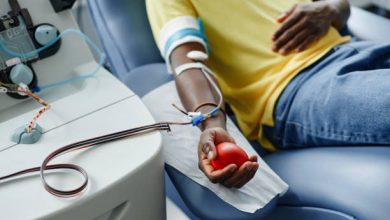5 Areas Where Black Patients Commonly Face Discrimination


Healthcare these days can be a complicated and frustrating mess.
Especially when you’re facing potential discrimination based on your sex, gender, age, or race! As a Black patient, you may have encountered certain, shall we say, less-than-stellar doctor visits. In some cases, discrepancies happen because you and your doctor lack that rapport that is so vital.
But in other cases, your doctor may be intentionally acting on biases and stereotypes that dramatically impact your treatment, outcomes, and everything else…
The facts are the facts. In the U.S., Black patients face significant challenges when seeking medical care, especially relative to other races and ethnicities.
Let’s cover the following five areas where the Black patient is most likely to face discrimination.
1. Pain Mismanagement
We all deal with pain from time to time, but from time to time, it’s more than just pain. It’s exhausting, debilitating, terrible pain.
Whether you find yourself barely able to function due to pain, or you simply want to address an annoying issue, you deserve the best care you can get. Unfortunately, this doesn’t always happen. In some cases, you barely get something that even works!
There are known reasons for this. Firstly, studies indicate that doctors frequently interpret Black patients as having higher pain tolerances, leaving their requests for adequate pain medication often ignored. Based on research, it appears this bias has persisted since as far back as the early days of slavery.
Unfortunately, the consequences can be dire, leading to problems in the emergency room, problems in clinics, and problems with opioids in general. According to the American Medical Association, Black patients received less appropriate pain management for conditions such as broken bones or post-surgical care, which often led to unnecessarily prolonged suffering.
RELATED: Is Your Doctor Biased? Subtle Ways You Can Tell
2. Cardiological Biases
Few things are more important than a healthy heart.
The problem is, that many cardiovascular conditions are being overlooked or poorly diagnosed due to doctor-patient biases. In the case of Black Americans, the rate of bias is higher in both diagnosis and treatment.
For instance, research indicates that Black patients are less likely to receive aggressive treatments for heart disease, whether it be angioplasty, bypass surgery, or even your typical preventive care with medications like statins.
In one study from the Journal of the American College of Cardiology, Black patients were infrequently prescribed medications for high blood pressure compared to white patients. This is an alarming finding, especially given that Black Americans are significantly more likely to be diagnosed with heart failure at younger ages.
Sadly, implicit bias in cardiology is not new. And it goes beyond mere medication prescription. It also influences the decision-making process of healthcare providers. In many scenarios, clinicians who are unconsciously influenced by racial stereotypes may fail to even acknowledge heart disease in Black individuals – dismissing obvious symptoms as less pressing.
As a result, the higher mortality rates of cardiovascular conditions in Black communities are (unfortunately) not all that surprising.
3. Maternal Healthcare
Despite its many healthcare advancements, the U.S. sees one of the highest rates of maternal mortality among developed countries. Why is this?
The answer, while complex, does paint an important picture of what is really happening here. If you compare between races, the maternal mortality rate for Black women is up to four times as high as that for white women, even when you factor in variables like income and education status.
Again, this is often attributed to problems with timely and appropriate care. Many Black women in labor are less likely to get the timely, adequate care they require. In fact, Black women in labor often experience more delays in getting critical procedures, such as cesarean sections, epidurals, and pain medication administration.
When this happens, the likelihood of adverse outcomes such as hemorrhaging, eclampsia, and even death may be significantly increased.
4. Mental Health Treatment
We all get ‘down’ from time to time, but there’s a difference between the occasional blues and the longer-lasting symptoms of diagnosed depression.
But here’s the thing. Oftentimes, discrepancies in the rates of mental health illnesses are a direct result of healthcare biases.
Don’t believe it? Simply consider the facts. According to significant research, Black patients are less likely to receive diagnoses for schizophrenia and mood disorders. Does this mean Black patients are simply less likely to have these conditions, or is there something else at play here?
According to researchers, the problem largely stems from a lack of access. Historically, Black communities have struggled to obtain equitable access to the kind of financial resources, medical resources, and cultural resources necessary to receive a fair, accurate diagnosis.
Many studies even attribute this lack of mental health treatment to age-old biases about how Black individuals think and feel. While wrong and factually incorrect, these biases persist to this day. For whatever reason, they have been installed in many medical minds and practices.
RELATED: 7 Reasons Blacks Don’t Participate in Cancer Clinical Trials
5. Underrepresentation in Clinical Trials
The idea of a ‘clinical trial’ may not be the most compelling. After all, who wants to volunteer themselves to be a human guinea pig?
The truth, of course, is a little different. Clinical trials are essential for advancing medical knowledge and helping to bring about new treatments that can save lives.
Are there inherent risks with any trial? Of course, but that doesn’t mean they shouldn’t be conducted or aren’t of extreme usefulness. Many protocols must be followed to ensure the safety and efficacy of any proposed treatments, and participants are typically kept well-informed about any ongoing risks and benefits.
Now obviously, as we emerge from the COVID-19 pandemic, many people are skeptical about health and wellness. They’re asking questions, having concerns, and rethinking aspects of the healthcare system. This is natural and to be expected.
But what we must remember is that with increased scrutiny and awareness, things will only get better.
And that includes cultural biases in medicine. Although these disparities continue to contribute to poorer outcomes for many Black patients, they do not have to continue. It may feel like an uphill battle – and it often is – but that doesn’t mean it can’t be won.
Simply consider your role in your own health and wellness. What do you want? What do you expect? How do you feel about your experiences thus far and going forward? Be open. Be communicative. Be willing to bring others (friends, family, etc.) to your next doctor’s visit.
Be the owner of your body. While doctors are highly trained and credentialed, at the end of the day, this is your body. You know it better than anyone, and you know when something doesn’t feel right and it’s more than just some passing issue.
Stay true to yourself. Respect the medical professionals, but never settle for less than your conscience tells you. As we move into the New Year, it’s time to change the game. It’s time to seek the best resources at our disposal and make the best decisions possible.
You’ve got this!




